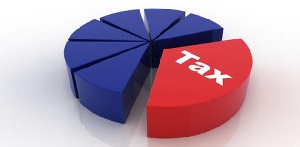 The report shows, African countries have been able to achieve tax transparency from 2019 till date
The report shows, African countries have been able to achieve tax transparency from 2019 till date
African countries made great strides in strengthening commitments and capacity to achieve tax transparency and exchange information on illicit fund flows in 2019, the latest Tax Transparency in Africa report has revealed.
Tax Transparency in Africa 2020, produced by the Global Forum for Transparency and Exchange of Information for Tax Purposes, the African Union and African Tax Administration Forum (ATAF), in close partnership with the African Development Bank, noted the need for African countries to engage further in revenue mobilization, a concern sharpened by the backdrop of the ongoing global novel coronavirus pandemic.
The report, which was launched virtually, provides comparable tax transparency statistics to aid decision makers to address illicit fund flows.
The 2020 report covers 32 Global Forum member countries, and three non-members: Angola, Guinea Bissau and Malawi.
“This annual publication of the Tax Transparency in Africa is part of the various efforts of the continent to advance global tax transparency and exchange of information agenda in Africa in order to combat corruption, tax evasion, money laundering, fraud, base erosion, and profit shifting and illicit enrichment,” said Victor Harrison, African Union Commission Commissioner for Economic Affairs, in the report’s preface.
Illicit financial flows in Africa are estimated at between $50 billion and $80 billion annually; 44 per cent of Africa’s financial wealth is thought be held offshore, which corresponds to tax revenue losses of €17 billion.
Participating countries show significant advances on the AI’s two core pillars: raising political awareness and commitment and developing capacities in tax transparency and exchange of information.
Marie Jose Garde, Chair of the Global Forum, chaired the live event.
Other participants included: Head of the Global Forum Secretariat Zayda Manatta; African Tax Administration Executive Secretary Logan Wort; Marcello Estevao, Global Director, Macroeconomics, Trade & Investment of the World Bank, and the African Development Bank’s Director, Governance and Public Financial Management, Abdoulaye Coulibaly.
Ms Manatta praised African countries’ growing proactive role in tax transparency and noted the benefits of existing exchange-sharing tools. “Requests for information directly translate into additional tax revenue and that’s what counts. We have five African countries identifying nearly $12 million in additional revenue, and eight African countries secured $189 million of additional revenue between 2014 and 2019.”
Mr. Coulibaly said, “The African Development Bank firmly believes that collaborations with both regional and international partners are key to moving forward the agenda on tax transparency which has significant impact on domestic resource mobilization, the achievement of the SDGs and other regional aspirations including; the African Union’s Agenda 2063 and the Bank’s own High Fives.”
He also underscored that the ongoing COVID-19 pandemic recalls the critical importance of domestic resource mobilization in Africa, in particular in relation to tax transparency and the fight against illicit flows, in order to protect populations against threats to their livelihoods.
The Africa Initiative, which launched in 2014, is a partnership of the Global Forum, its African members and regional and international organizations, including; the African Development Bank, ATAF, and The World Bank. The Global Forum has a self-standing dedicated secretariat based in the OECD’s Centre for Tax Policy and Administration.
The African Development Bank, an observer to the Global Forum since 2014, also participates in the Africa Initiative.
The Bank promotes African tax transparency through support to institutions and non-state actors in its regional member countries and by strengthening international co-operation to eliminate IFFs.